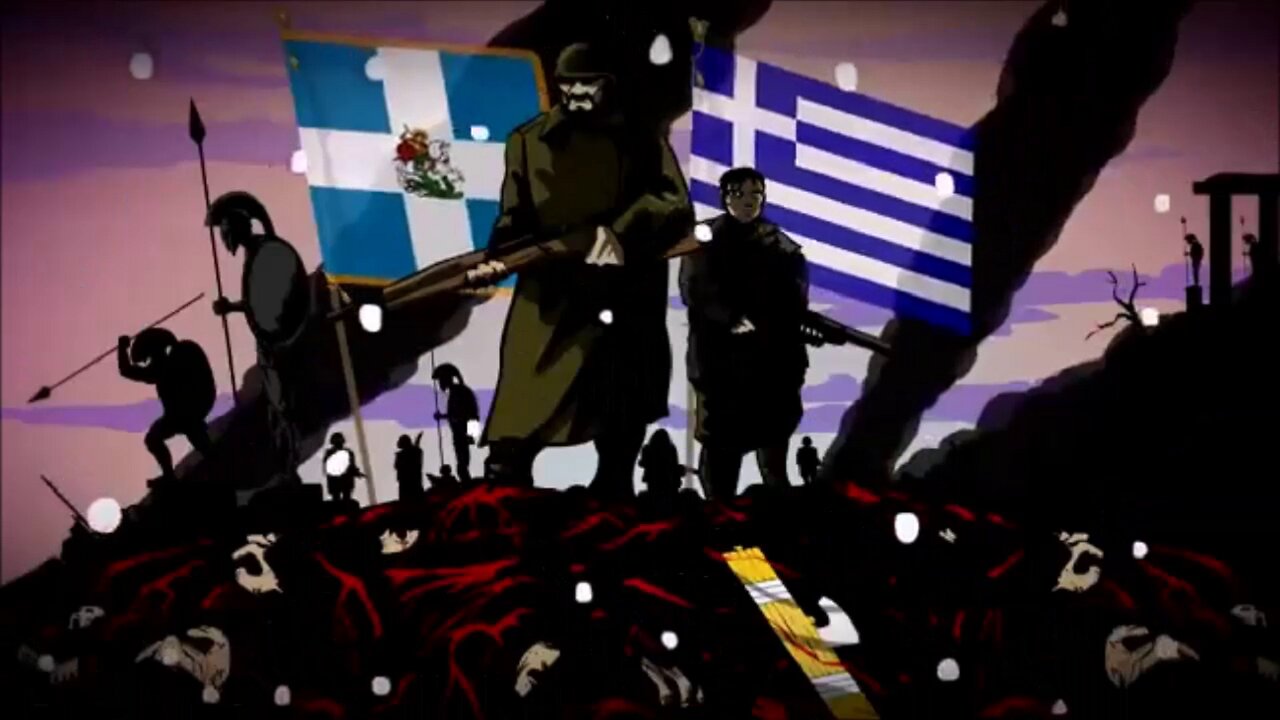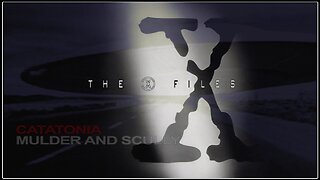Premium Only Content

The Greco-Italian War_28_10_1940 to 23_04_1941 (including Battle of Crete) WW II Documentary
The Greek victory over the initial Italian offensive of October 1940 was the first major Allied land victory of the Second World War and helped raise morale in occupied Europe.
ITALY :565,000 men, 463 aircraft, 163 light tanks
GREECE : less than 300,000 men, 77 aircraft
The Greco-Italian War, also known as the Italo-Greek War, was a conflict between Italy and Greece, which lasted from 28 October 1940 to 23 April 1941.
The conflict marked the beginning of the Balkans campaign of World War II and the initial Greek counteroffensive, the first successful land campaign against the Axis powers in the war.
The conflict known as the Battle of Greece began with the intervention of Nazi Germany on 6 April 1941. In Greece, it is known as the "War of '40"and in Italy as the "War of Greece".
Some historians, such as John Keegan, argue that it may have influenced the course of the entire war by forcing Germany to postpone the invasion of the Soviet Union in order to assist Italy against Greece.
The delay meant that the German forces invading the Soviet Union had not attained their objectives for that year before the harsh Russian winter, leading to their defeat at the Battle of Moscow.
Looking back near the end of the war, as Germany's inevitable and impending defeat loomed ever closer, Hitler attributed great blame to Mussolini's Greek fiasco as the cause of his own subsequent catastrophe.
Greeks suffered hugely at the hands of Hitler’s forces, enduring what Germany’s president, Frank-Walter Steinmeier, recently described on a visit to Greece as “unimaginable” horrors.
Tens of thousands were killed in reprisals as Greeks mounted what historians would later hail as a heroic resistance against the Wehrmacht [Nazi armed forces], with entire villages being wiped out between 1941 and 1944.
By the time the occupation ended, an estimated 300,000 people had died from famine and the country’s Jewish community had been almost entirely obliterated.
Greece demands €300bn in damages following debate on the findings of an all-inclusive parliamentary inquiry into the German occupation. "These demands are valid and active".
The findings have been described as the first complete reading of Nazi atrocities in Greece.
In its report – compiled after in-depth research of records obtained from US national archives and Russia – the cross-party committee estimated that €11bn was owed for an interest-free “occupation loan” forcibly extracted by German forces.
Gold holdings, seized from the country’s central bank in 1943, were used to fund Germany’s campaign in North Africa. A further €288bn, it said, remained outstanding for the destruction Greece sustained during the war.
A Bundestag report in 2019 found that Greece's claims did have legal weight.
Countries such as Greece and Poland that had been invaded by Germany in the war were not included in the negotiations for the treaty.
The vice president of the Bundestag, the Greens' Claudia Roth, said she was ashamed of Germany's attitude, while Left lawmaker Heike Hansel called the government's position "neither morally nor legally acceptable."
Greek compensation claims pale by comparison. Warsaw was razed to the ground by the Nazis after an abortive uprising in which 200,000 civilians died. The lives of 6 million Poles – including 3 million Polish Jews – were lost. Poland, which also faces parliamentary elections this year, has since demanded €800bn in war debts it insists it is still owed by Germany.
-
 4:11
4:11
CigaretteSmokingMan
4 months agoCatatonia - Mulder And Scully
994 -
 4:20:21
4:20:21
Nerdrotic
12 hours ago $53.83 earnedDaradevil Born Again, Comics Industry CRASH, Neu-Hollywood REBUILD | Friday Night Tights #337
185K31 -
 1:32:34
1:32:34
Glenn Greenwald
8 hours agoThe Future of Gaza With Abubaker Abed; Journalist Sam Husseini On His Physical Expulsion From Blinken’s Briefing & Biden’s Gaza Legacy | System Update #391
88.7K65 -
 1:34:48
1:34:48
Roseanne Barr
10 hours ago $17.55 earnedWe are so F*cking Punk Rock! with Drea de Matteo | The Roseanne Barr Podcast #83
71.6K41 -
 1:08:20
1:08:20
Man in America
11 hours ago🇨🇳 RedNote: A CCP Trojan Horse Deceiving Americans? w/ Levi Browde
31.5K32 -
 3:55:11
3:55:11
I_Came_With_Fire_Podcast
14 hours agoTrump SABOTAGE, LA FIRE CHIEF SUED, and BIDEN’S LAST F-U!
18.9K7 -
 2:59:47
2:59:47
Joker Effect
6 hours agoUkraine in a video game? Hardest thing I have done. S.T.A.L.K.E.R.2 Heart of Chornobyl,
69.9K4 -
 1:15:22
1:15:22
Flyover Conservatives
1 day agoEczema, Brain Fog, B.O., and Gas… Eating Steak and Butter Creates Ultimate Health Hack - Bella, Steak and Butter Gal | FOC Show
54.7K3 -
 51:58
51:58
PMG
9 hours ago $2.41 earned"Can the Government Learn from Elon Musk’s 70% Labor Cut? A Deep Dive into Inefficient Agencies"
38.1K1 -
 6:39:15
6:39:15
Amish Zaku
9 hours agoRumble Spartans #10 - New Year New Maps
33.6K2